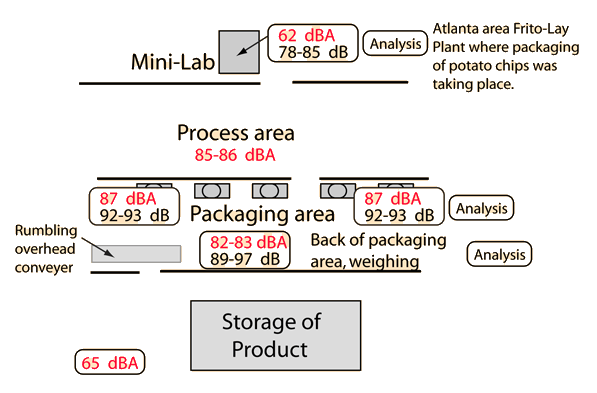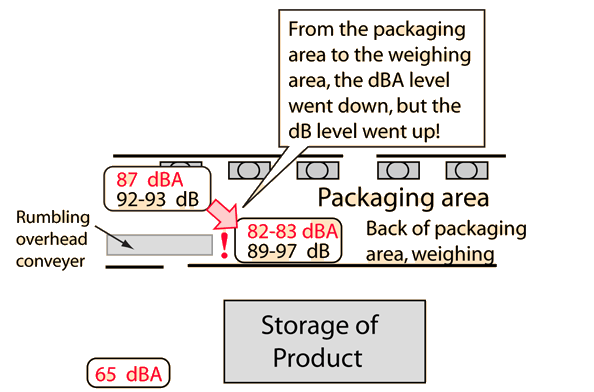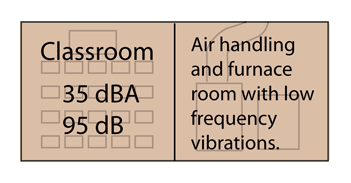Factory Sound Measurements
How do you use a combination of A contour and straight decibels measurements to reliably assess a sound field? For a discussion of the interpretation of the measurements in a given area, click on that area in the illustration below.

The measurements in this factory area were made with a research-quality sound-level meter which had a certified "flat to 20 kHz" range which gave legitimate dB measurements. Most survey sound-level meters have just two options: dBA and dBC. This is because low-cost sound survey meters will not have a certified dB scale, but can meet the standards for dBC which has a small discrimination against very high and very low sounds. Practically, dBC and dB are essentially the same. So good practice for a sound survey with such a meter would be to measure in both dBA and dBC in every location. The difference between them gives you information about the frequency distribution of the sound and helps to avoid misleading results in cases where there is a significant change in the frequency distribution in different measurement locations.
Hearing concepts
Sound level measurement
Sound measurement examples
Reference
Backus
| HyperPhysics***** Sound | R Nave |



